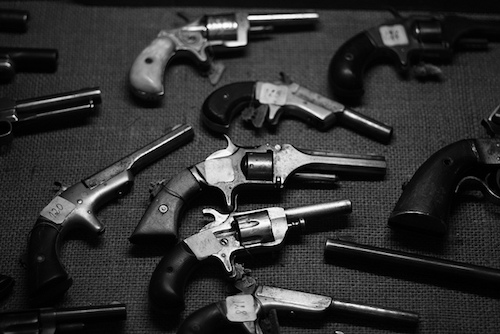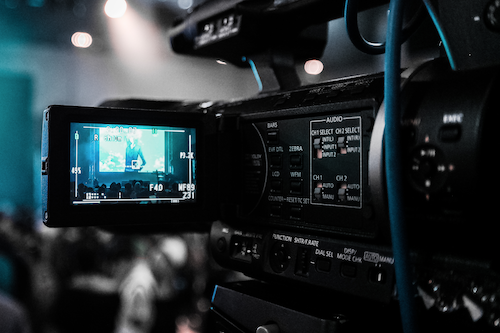In the wake of the deadly June mass shooting at an Orlando nightclub that left 50 dead and 53 injured, several organizations collaborated to survey the Asian American community about gun control and found that 77 percent are for stricter measures on firearms.
Compared to a 2015 CNN poll that found that 48 percent (and 51 percent in opposition) of overall Americans are in favor of harsher measures against firearms, and others that confirm Americans’ split on firearm control measures, 77 percent is a pretty big number.
What’s behind it? Taehyun Kim, a sociologist, political scientist and mass communications professor at California State University, Northridge, suggests the Asian American community’s stance on gun control may partly have to do with the history of guns – cultural aspects and military philosophy included – in Asia.
“There is something cultural about the anti-gun attitude of Asians,” said Kim, a journalist and media expert who has held several administrative roles for the Korean American Communication Association since 2004. “Asian dynasties used to have strong military forces, and most of them were equipped with martial arts, swords, archery. … Guns were considered cowardly because anyone can use them with very little training. Warriors and shoguns mastered the art of combat. Shooting to kill someone was too simple and too brutal. To declare victory, one must demonstrate physical or mental superiority. The Western cowboy quickdraw method didn’t really seem appealing.”
Gun control in many parts of Asia began as early as the 15th and 16th centuries. According to the Library of Congress, guns first became banned in Japan for citizens by Hideyoshi Toyotomi in 1588, then the leader of the nation, a few years after they were introduced by Portuguese merchants. Then, the Tokugawa shogunate seized power and expanded gun control measures starting in 1629, only allowing the use of guns to hunt pests and completely barring gun ownership in the city of Tokyo except for shogun elites.
In China, guns were completely outlawed for Solon people by the Qianlong Emperor in the 17th century, who mandated all firearms be turned over to the government and demanded they return to mastering archery instead.
Kim said guns symbolize Western imperialism to many members of the AAPI community. “Guns are a symbol of Western imperialism. When Western merchant ships arrived in Japan, China and Korea, Westerners used their guns to force Asian regimes to accept unequal treaties,” Kim said. “Likewise, most of European countries used guns to conquer colonies.”
Brian Lee, 27, a second-generation Korean American and UCLA sociology graduate, said he sees the influence of Eastern Asian culture on Asian Americans, many of them from immigrant families who come from nonexistent gun cultures.
An example is South Korea – the country prohibits firearm ownership with the exception of hunting rifles, meaning gun ownership is rare. Even airsoft guns, tasers and crossbows are considered firearms, and if owned, must be kept at military or police stations. Violation of any gun policy can carry a stiff penalty of up to 10 years of prison time and a fine. “Guns have a negative connotation of danger to many Asian people that already live in collective cultures,” Lee said. “They would rather ban firearms to make everyone feel safe than to allow gun ownership and hope nobody will shoot them.”
Hansook Oh, 26, another second-generation Korean American, agreed with the notion that gun control is an extremely important issue.
“We need more gun regulation and we need to let the CDC do research on the risks gun pose to the public,” Oh said. Lee, however, believes that strict gun control may not be the final solution to solving gun violence in the United States, instead supporting the expansion of mental health and psychiatric services for those in need. “Gun control may be the band-aid we need now until we look for a better solution.”
Lee said federal restrictions on firearms would not be a fair solution to the complex problem of national gun violence. “Some states have more lax gun laws, but do not have high amounts of gun-related crimes,” Lee said. “Gun control laws should be done on a state-to-state basis. I believe in enacting whatever law works for each state.”
A week after an overwhelming majority of Asian Americans voters agreed with the statement that “we should have stricter gun laws in the United States” in the survey conducted by APIAVote, AAPI Data and AAAJ, the National Council Of Asian Pacific Americans (NCAPA) and over 20 of its affiliates urged Congress to pass “common sense” gun control.
“Enough is enough. These measures are long overdue,” said Johanna Hester, president of the Asian Pacific American Labor Alliance (APALA) in a statement released to the media. “The nation has suffered too many instances of tragic shootings – from Newtown to San Bernardino to the most recent mass shooting in Orlando last weekend. It’s about time Congress takes action and helps put a stop to this pattern of violence at home.”
According to AAPI Data, Asian Americans rank guns laws as one of their primary concerns in terms of voting in the November election. A Spring 2016 survey by AAPI Data found that 74 percent of Asian American registered voters said gun control for them was either an “extremely important” or “very important” issue, the other choices being “somewhat important” or “not important.” A Fall 2014 survey found the same answers from 71 percent of the AAPI community.







